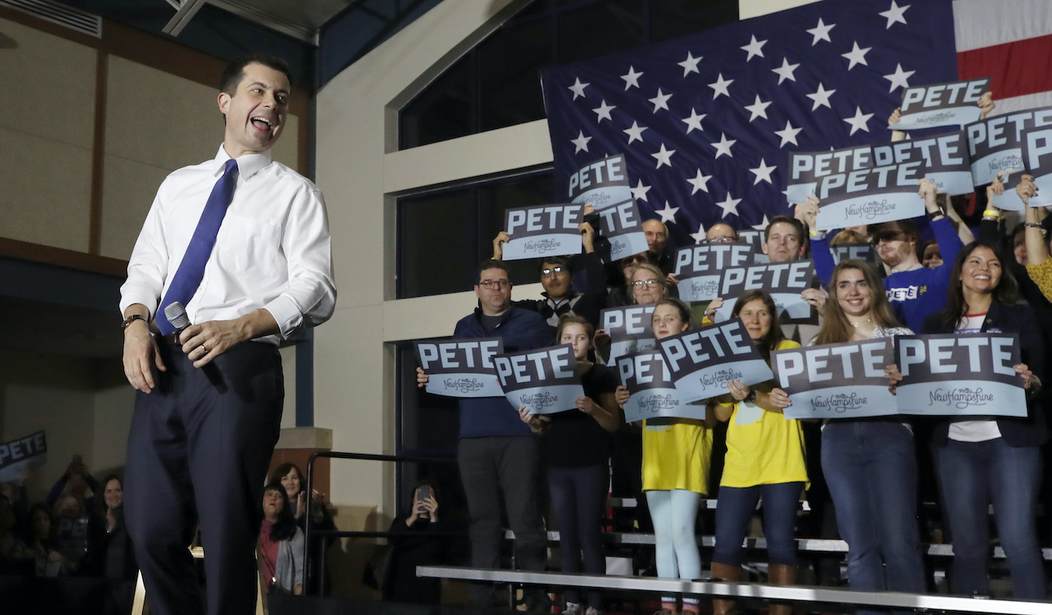Nashua, NH--The New Hampshire primary is over, and Bernie Sanders emerged victoriously. In the days prior to the showdown, Democrats scrambled to touch as many voters as possible prior to Election Day. Former South Bend Mayor Pete Buttigieg was one candidate who could give Sanders a run for his money in his backyard. In fact, if there was no surge from Sen. Amy Klobuchar (D-MN), there was a good chance that Pete could’ve beaten Bernie. Alas, that didn’t happen, but the top tier of the 2020 field has shifted. Sanders is now the frontrunner, with Buttigieg and Klobuchar behind him. Former Vice President Joe Biden is now on life support. Yet, what is the deal with Buttigieg? Does he actually say anything? Or at least anything that hasn’t been said before in years past? You decide. This was Pete’s plan for reducing the price of prescription drugs, which neither party has done well in executing. The former mayor laid out his plan at a get-out-the-vote rally at Elm Street Middle School in Nashua. The core of his plan is standing up to drug companies when they act bad or something and allowing Medicare to negotiate for drug prices, which has been said before.
Sorry...I forgot to include the last bit #nhprimary pic.twitter.com/w7WEIUER9p
— Matt Vespa (@mVespa1) February 18, 2020
I mean, his website has more details, but it would seem as if the Trump White House has already discussed ways to reduce the cost of prescription drugs. It was unveiled at the State of the Union in 2019 (via Real Clear Health):
At his State of the Union Address earlier this month, President Trump said his "next major priority" is to lower the cost of prescription drugs.
This is one of Trump's few policy initiatives that could garner bipartisan support. But patients and patient advocates are skeptical. They've heard this goal before. Further, solely focusing on lowering the list prices of prescription drugs is a simplistic solution to a complex cost calculation, which also includes skyrocketing co-payments, deductibles, premium, and other out of pocket costs.
A proposed rule introduced by the Department of Health and Human Services (HHS) late last month would take a significant step in doing just this. It would require some $150 billion worth of annual drug rebates to flow directly to patients in the form of lower drug costs at the prescription counter. HHS Secretary Alex Azar says the move is possibly "the single biggest change to the way Americans’ drugs are priced at the pharmacy counter, ever."
What are drug rebates? Drug manufacturers pay massive kickbacks, known as rebates, to drug distribution middlemen called pharmacy benefit managers (PBMs) in order to access insurance plan formularies (the lucrative lists of drugs that insurance plans will cover). PBM compensation is generally based on the size of the rebates they can generate.
Rebates account for about one-third of prescription drug list prices and have doubled over the past several years. These hidden and ever-increasing payouts – what Food and Drug Administration Commissioner Scott Gottlieb calls "Kabuki drug pricing constructs" – are responsible for rising drug prices.
Recommended
Everything that comes out of Mayor Pete's mouth sound beautiful. And means ... nothing. #DemDebate
— Kimberley Strassel (@KimStrassel) February 8, 2020
Yeah, if you thought that Buttigieg hasn’t said much in this clip or in any of the debates, you’re not alone. He is a true politician in the sense that he says much without saying much at all. One writer for The Washington Post compared Buttigieg to France’s Macron and that is not a good thing:
Much like with Macron, Buttigieg’s policies either aren’t emphasized by his campaign or are hard to nail down. At one point, Buttigieg said he supported both Medicare-for-all and the Green New Deal, two planks of the Democratic Party’s energized left-wing base. He’s since backed off, settling instead for “Medicare for all who want it” and a boilerplate call for net-zero carbon emissions by 2050. Macron, too, was infamously vague about what he’d actually do in office, not releasing his full platform until March 2017, less than eight weeks before the first round of the election.
Both also found heavy support from wealthy donors, who appear to believe that the politicians’ interests align with their own priorities. Of the roughly 16 million euros Macron’s party raised between March 2016 and the end of 2017, nearly half came from contributions that were between 4,500 and 4,600 euros, France’s legal maximum. Buttigieg, meanwhile, has hauled in cash from 40 different billionaires, with more than half his contributions topping $200.
It’s too early to say whether Mayor Pete can go all the way. But shoddy details on policy could chip away his standing in the polls, coupled with his weakness with black voters, which has been well-documented, and you could see another shift in whose in the Left’s top crop.

























Join the conversation as a VIP Member